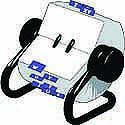|
PROPOSITION
13
Proposition
13 is a far-reaching referendum passed by the California voters
in 1978. Called a tax revolt, the proposition put a limit on how
quickly property taxes in California could grow. Taxpayers were
having trouble paying taxes as their land values rose rapidly during
the 1970s and cities, counties and other agencies each took a big
bite. So Californians voted to limit their tax burden by placing
a 1% per year maximum property tax.
Further,
for tax purposes, the value of a piece of property could grow only
2% per year as long as the same owner owned it. As soon as the property
was transferred, the property was re-valued to its current market
value
Local
governments found the limits gave them little room for growth in
services, especially when cost of living inflation made the same
service cost more to provide. Local governments, instead found they
had to reduce services or find new sources of income. Many governments
started adopting user fees so that those who made use of the services
paid for them instead of taxpayers picking up the bill.
|







